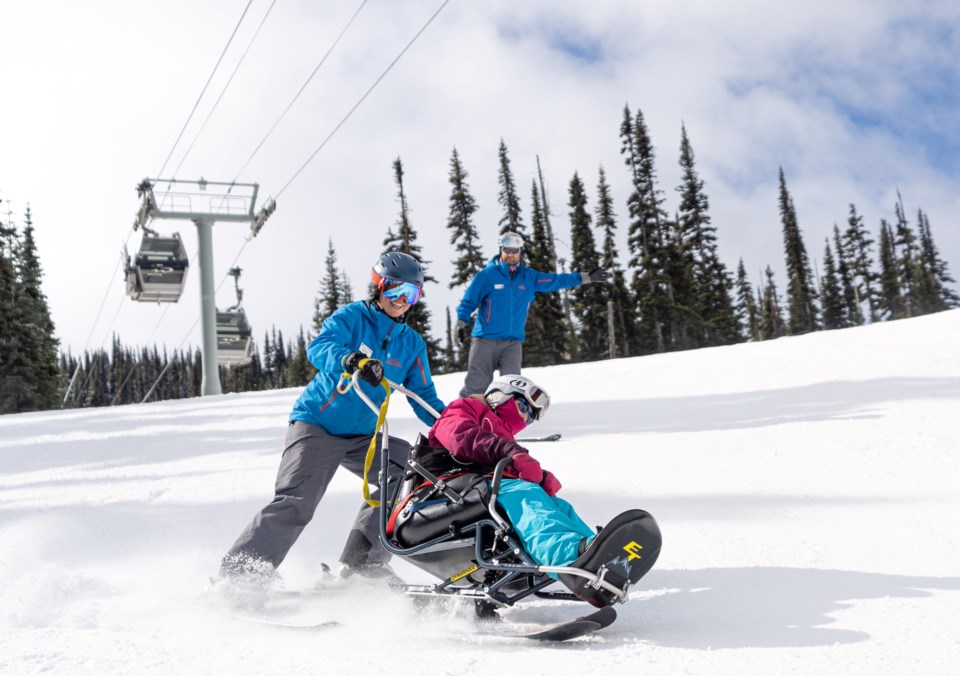The Resort Municipality of Whistler (RMOW) is one of eight B.C. municipalities and two First Nations communities receiving funding from the Rick Hansen Foundation (RHF) to improve accessibility in the resort and provide accessibility training for municipal staff.
Brad McCannell, RHF vice president of access and inclusion, believes the funding provided through the B.C. Grants Program will go a long way toward improving accessibility in the communities.
“Almost 50 per cent of adults in Canada have a permanent or temporary disability or live with someone who does. Many of us struggle every day to access the places where we live, work, learn, and play, facing significant barriers that others take for granted,” McCannell said in a release.
“Accessibility improvements to spaces such as community centres, libraries and arts facilities will benefit everyone across our province—parents, seniors, people with temporary and permanent disabilities, their caregivers and loved ones. Everyone has a right to real, meaningful access.”
The municipalities receiving the grant were selected based on population and geographic representation. Local governments in Whistler, Coquitlam, Kamloops, Kelowna, Nanaimo, Port Moody, Prince George, and Richmond will each receive $82,500 to improve accessibility at three sites in their respective communities.
The RHF will identify the locations needing improvement, and following the upgrades, municipalities will receive accessibility certification and plaques for each site.
According to McCannell, the RHF created the Accessibility Certification program to fill a gap between what is required by provincial building codes and the needs of the disabled community.
The program aims to provide meaningful access for disabled persons that considers a more comprehensive array of disabilities, while addressing issues not covered by building codes— and ultimately changing the culture of the building industry.
The funding comes at an ideal time. Whistler is hosting the Invictus Games 2025, bringing hundreds of disabled and injured veterans to the resort to compete in adaptive sports.
Councillor Jessie Morden, council’s representative on the RMOW’s Accessibility and Inclusion Committee, believes improving access will help not only people with disabilities but also parents with small children, and the funding is coming at an advantageous time with the Invictus games quickly approaching.
“We’re thrilled to be selected by the Rick Hansen foundation for this grant, which is huge for our community. It will enable us to work towards our commitment to improving accessibility for residents and visitors with disabilities,” Morden said.
“Accessibility benefits everyone. So having this grant will help everyone who has small children. I have two kids, and one has to be in a stroller, and I find it hard navigating around town sometimes with the lack of ramps, elevators, or whatnot. We have to go far away to find one, so it will be nice to put in some more accessible areas like that.”
In addition to the funding, three RMOW staff members will receive a complimentary RHF Accessibility Certification tuition grant to instruct staff on how to rate existing buildings and pre-construction drawings on their level of accessibility.
“Not only do we recognize that municipalities require access to this program and funding, but we want to ensure that future building upgrades and new structures can be designed with accessibility in mind,” McCannell said. “Through accessibility training, each municipality will have the opportunity to continue their community’s accessibility journey and foster a positive culture of Diversity, Equity and Inclusion.”
Along with the eight municipal recipients, two B.C. Indigenous communities will also receive funding through the program, which the foundation said it would announce in the coming months.




